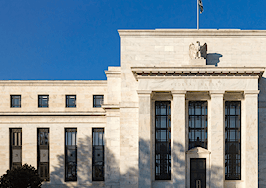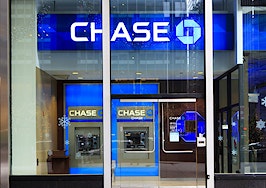Lew Sichelman is a seasoned writer with 50 years of covering the housing and mortgage markets under his belt. His biweekly Inman column publishes on Tuesdays.
“For now” are the latest watchwords for the housing sector moving forward.
For now, according to economists speaking at the National Association of Home Builders’ (NAHB) annual convention and expo last week in snowy Las Vegas, mortgage rates will remain manageable.
Indeed, both Robert Dietz, the NAHB’s chief economist, and Frank Nothaft, Dietz’s counterpart at CoreLogic, believe loan costs will remain below 5 percent for this year before rising only slightly above that level in 2020.
Dietz said rates will run an average of 4.8 percent this year and “rise gradually” to 5.1 percent next year, whereas Nothaft predicted that rates will remain below 4.7 percent in 2019.
A third chief economist, David Berson at Nationwide Insurance, was on the high side, saying rates will hover “a little over 5 percent” this year.
The three economists also agreed that a recession isn’t on their radar screens — at least for now. And that means that in June, the overall recovery from the Great Recession of 2008 will hit the 10-year mark, making it the longest on record, they said during a press briefing.
“Eventually, the recovery will end. It can’t go on forever,” said Berson, who used to hang his shingle at Fannie Mae. “The odds of a downturn over the next year are still pretty low. But they probably go up thereafter.”
Nothaft, another government-sponsored enterprise (GSE) escapee who plied his trade at Freddie Mac, said the risk of a downturn “isn’t great” in 2020 or even 2021. “I’m not worried about this year at all,” he added.
What to watch for
Berson said real estate interests should pay close attention to two key factors: the yield curve and auto lending.
Once the yield curve inverts, meaning once long-term rates such as the 30-year mortgage drop lower than that on short-term, one-year treasury notes, the possibility of a recession becomes greater, Berson explained.
But he doesn’t expect that to happen until the end of next year at the earliest, and the economy won’t fall into a recession until 12 to 18 months after that, he said. Consequently, he explained, the odds of a recession won’t hit until late 2021 or 2022, “after a very long recovery.”
While many observers are concerned about the impact of student debt on people’s ability to purchase homes, the Nationwide economist finds auto lending just as worrisome, if not more so. He pointed to data from the New York Federal Reserve Bank which found that a third of the car loans made last year were to borrowers with a 660 credit score or less, and 20 percent were to people with a score below 620.
“These are really marginal credit risks,” he said. “And as a result, the delinquency rate in the sector is higher than it’s been in 15 years.”
If there is a recession, or better yet, when there finally is a recession, housing can be expected to resume its traditional role of leading the economy back to full health, said the NAHB’s Dietz.
“Household balance sheets are in pretty good shape, there hasn’t been a lot of overbuilding, and house prices are up only 4 percent as compared to 7 percent prior to the last downturn,” he explained.
All three economists agreed that the Federal Reserve will keep its finger on the pause button on interest rates, at least for now. But even though the financial markets expect no further tightening at the moment, and the Fed has said it will be patient, both Berson and Nothaft expect two or three more quarter-point rate hikes later this year.
Meanwhile, Dietz expects only a modest uptick in housing production this year, as overall starts rise less than 1 percent from an estimated 1.26 million to 1.27 million single and multi-family units.
Single-family starts alone are forecast to climb 2 percent in 2019, from 876,000 in 2018 to 894,000 this year. But that’s still well below the 1.2 million units the demographics indicate are necessary to keep up with the projected growth in household formations.
Dietz is “a little more negative” about 2020, but for now, he says growth will be “positive, if not spectacular.” His members seem a bit more confident, though. According to the latest NAHB poll of builder confidence, their outlook for increasing sales is moving higher, exceeding expectations.
The fall back in mortgage rates over the last few weeks plus the strong job numbers are fueling builders’ sentiments. But Dietz pointed out that they are still grappling with numerous headwinds.
“Ongoing job creation and solid household formations will keep demand firm,” he said. “But supply-side issues such as a severe labor shortage, rising material costs and a dearth of buildable lots, among other issues, will dampen more vigorous growth in the single-family sector.”
CoreLogic’s Nothaft, on the other hand, is a bit more positive too. He looks for a 3 percent increase in single-family starts and perhaps even more in hot markets where the local economy is strong, unemployment is low and the weather is favorable. These kind of markets, which are located primarily in the South and West, have had the strongest increase in new home sales over the last year, he noted.
Lew Sichelman is a seasoned writer with 50 years of covering the housing and mortgage markets under his belt. His biweekly Inman column publishes on Tuesdays.









